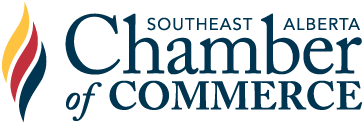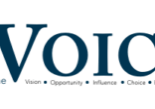Supports for Business
COVID-19 Economic Response Plan: Impact on Business
Canada Emergency Business Account (CEBA)
- As of July 3, 688,000 applicants have been approved for CEBA for a total of $27.41 billion in funds disbursed, including $7 billion of which is forgivable if the loan is paid back before December 31, 2022. Over 65 per cent of the businesses eligible based on the payroll criteria have benefitted from the program.
Canada Emergency Wage Subsidy (CEWS)
- To date, the program has supported about three million employees by helping them stay in the workforce or return to work.
Canada Emergency Commercial Rent Assistance (CECRA)
- As of July 3, Canada Mortgage and Housing Corporation (CMHC), the CECRA program administrator, has approved applications representing over 29,000 small businesses with over 209,000 employees, and total requested funding of over $221 million. In addition to thousands of applications by property owners in progress or being processed, CMHC is working closely with large property owners to complete applications to provide rent support to a further 25,000 small businesses.
Business Credit Availability Program (BCAP)
- As of July 3, 148 guarantees have been confirmed for a total loan value of over $303.59 million. Based on the experience with similar products made available during the 2009 financial crisis, uptake of these programs is expected to grow steadily over time.
Large Employer Emergency Financing Facility (LEEFF)
- Applications for LEEFF have been received and are currently undergoing the necessary due diligence to protect taxpayers.
Supports for Individuals
The Government of Canada publishes final regulations on changes to federal labour standards for work-integrated learning
Today, the government announced that the Standards for Work-Integrated Learning Activities Regulations are now published in Part II of the Canada Gazette. The legislative changes and the Regulations are scheduled to come into force on September 1, 2020. the Government of Canada continues to move forward with changes, including those put forward in the Budget Implementation Act, 2017, No. 1, to strengthen pay protections and regulations for work-integrated learning in federally regulated workplaces.
COVID-19 Economic Response Plan: Impacts on Individuals
- Canada Emergency Response Benefit (CERB) As of June 28, the CERB has provided over $53 billion in benefit payments to 8.16 million individuals.
- Canada Emergency Wage Subsidy (CEWS). CEWS has supported about three million employees by helping them stay in the workforce or return to work.
- To help families with children cope with the added pressures of COVID-19, the government delivered almost $2 billion in additional support through a special one-time $300 top-up of the Canada Child Benefit (CCB) for each child. Approximately 3.7 million families benefited from this measure.
- Furthermore, a special top-up payment under the Goods and Services Tax (GST) Credit was delivered to over 12 million low- and modest-income individuals and families, giving, on average, single adults almost $400 in additional benefits, and couples almost $600.
- The Canada Emergency Student Benefit (CESB) To date, it has provided over $1.4 billion to over 600,000 applicants.
- More than 4 million seniors benefitted from the one-time special top-up payment through the GST Credit. Eligible seniors received an average of $375 if they were single and $510 for couples.
Community Supports and Resources
Federal Government Releases Economic Snapshot
Today's economic and fiscal snapshot noted that:
- As businesses and many sectors of the economy closed or curtailed their activities as a result of the pandemic, the Canadian and global economies took a severe hit. In Canada, 5.5 million Canadians - 30 per cent of the workforce - either lost their jobs or saw their hours significantly scaled back over March and April.
- Private sector economists expect an annualized decline of over 40 per cent in Canada's real GDP in the second quarter of this year. They expect the economy to contract by 6.8 per cent in 2020 as a whole, its sharpest drop since the Great Depression, before rebounding by 5.5 per cent in 2021.
- There are now growing signs that the worst of the economic shock is behind the Canadian economy, as the gradual and safe reopening of the economy continues. The shape of Canada's economic recovery is uncertain and highly dependent on public health.
- The decisive and substantial support provided through the government's economic response plan helped prevent further costly damage to the Canadian economy by replacing the more than $40 billion lost in labour income, preventing the contraction in real GDP to reach over 10 per cent in 2020 and the unemployment rate to rise by a further 2 percentage points.
- The temporary measures implemented through the government's economic response plan will have a significant impact on the federal deficit. Coupled with the severe deterioration in the economic outlook, these result in a projected deficit of $343.2 billion in 2020-21.
- While this year's deficit estimate is elevated, the government's response is in line with the fiscal response deployed by other comparator countries. Coming out of the crisis, Canada is expected to maintain its low debt advantage among G7 countries. The government's commitment to maintaining this advantage will help ensure that future generations are not burdened with COVID-19 related debt.
Health Canada confirms ban of advertising for vaping products wherever they can be seen or heard by youth
Following consultations on proposed changes, today the Honourable Patty Hajdu, Minister of Health, announced final regulations to prevent vaping products from being advertised in ways that the ads can be seen or heard by young people.
These new changes will further restrict the promotion of vaping products, to protect youth from being exposed to advertisements that can induce them to try vaping. It will now be prohibited to advertise vaping products in public spaces if the ads can be seen or heard by youth, whether in brick and mortar stores, online or other media channels. In addition, the display of vaping products at point-of-sale where youth have access will be prohibited. These changes will also require that any permitted ads displayed where youth are not permitted convey a health warning about vaping product harms. These requirements are applicable only when a province or territory does not already have such requirements in place.
City Hall to Begin Easing Restrictions Monday, July 13
Beginning Monday, July 13, City Hall will begin easing restrictions to access services within the building.
Customer Service, Assessment, as well as Planning & Development Services will be offering counter service to customers looking to speak with someone in person, or make a payment on their account.The public will continue to enter through the doors on 1st Street SE and check in with security. To best accommodate physical distancing guidelines as outlined by the Government of Alberta, only 10 members of the public will be allowed into the building at one time. More information
Echo Dale Swim Lake Reopening for 2020 Season
The City is pleased to provide an update on the plan to reopen the Echo Dale swim lake, tentatively scheduled for Friday, July 17.
"Echo Dale will feel different than in previous years, but it can still be enjoyed by family and friends together," said Scott Richter, Manager of Parks. "Necessary measures will be in place. Beach-goers and swimmers alike are reminded that physical distancing rules are in effect, on the grass, along the sand and in the water." More information
Advocacy
Federal Government Releases Economic Snapshot, Including $343 Billion Deficit
Today, the Government of Canada released its economic snapshot - a picture of the federal spending to date this year, amid the pandemic. The snapshot includes a projected deficit this year of $343 billion and a debt-to-GDP ratio of 49.1%. Following the release, we made it clear that Canada needs a plan to restore private sector growth, starting with a tailored strategy and a timetable for safely reopening that will allow businesses and families alike to plan. Read our statement
Strengthening Canadian Supply Chain Resiliency
The economic fallout from COVID-19 has brought into focus the need to strengthen our supply chains, which is why we, with the support of provincial and territorial chambers, have laid out 14 recommendations to the government on bolstering our economy through enhancing supply chain resiliency both domestically and internationally. Read more
Accessibility Standards Canada Seeking Volunteers To Help Create The First Accessibility Standards
Accessibility Standards Canada is recruiting volunteer experts for two technical committees. These committees will create our first accessibility standards in the areas of plain language and outdoor spaces. Each technical committee will consist of 12 to 18 members and represent the following categories:
- Persons with disabilities
- Industry and commerce
- Government authorities
- Consumer and public interest
- Labour and unions
- University groups and research groups
- Non-governmental organizations
New Resources
RRPCanada.org Provides Free Of Charge Service For Local Organizations To Request PPE Donations
Many Canadian organizations have budget shortfalls to pay for critical PPE to keep workers safe. To help bridge the PPE gap, RRPCanada.org launched a "Support Local Organizations" page on their website that lists PPE needs of specific organizations, enabling Canadians to purchase PPE on their behalf. Read more
Upcoming Webinars
July 9: Welcome to the Get Ready Workplace IPAC Program Register here
July 9: Get Digital: Upping Your E-Commerce Game Register here
July 14: Maintaining Business Continuity Through COVID-19 and Beyond Register here
July 15: Profit from technology: Digital tools to drive efficiency and revenue. Register here.
July 15: From Far and Wide: Canada's Accelerated Technology Landscape Register here
July 16: Preparing for the Second Wave: A B20 Event Register here
July 16: #PathToGrowth Register here
July 17: Medicine Hat Systems Transformation Innovation Forum Register here
July 20: How To Support Employees' Mental Health And Well-Being During COVID-19 And Beyond. Register Now.

